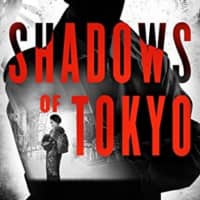The short-lived Taisho Era (1912-26) demokurashī (democracy) was followed by a financial crash that gave way to poverty, desperation and creeping militarism, culminating in the Pacific War from 1941 to 1945.
"Shadows of Tokyo" portrays the somber zeitgeist of Japan's capital in 1931, where rightist assassins armed with swords, handguns and bombs stalk key political and business figures. Masaru Ryusaki, an ambitious rabble-rouser, is one of a number of false messiahs hoping to stage a putsch and bring about a "Showa Restoration" to enable Japan to realize its Manifest Destiny.
The man with his finger in this collapsing dam is police inspector Kenji Aizawa, a survivor of the disastrous Siberian Intervention of a decade earlier, in which Japan lost some 5,000 soldiers to military action and sickness.
Ryusaki's mistress, Reiko Watanabe — a moga (modern girl) by day and geisha by night — disturbed by her lover's conspiratorial intrigues, telephones Aizawa anonymously with warnings of impending assassination plots. The cop, however, is hamstrung by self-serving bosses who secretly support the nationalists. After several harrowing run-ins with the rightists and their cohorts, Watanabe and Aizawa eventually meet in person and form an awkward alliance.
Legare's story reflects conscientious research into historic detail. Aside from James Melville's 1987 novel "The Imperial Way," few Western writers have set novels in this dark era — perhaps because they know that a happy ending won't be forthcoming.


















With your current subscription plan you can comment on stories. However, before writing your first comment, please create a display name in the Profile section of your subscriber account page.